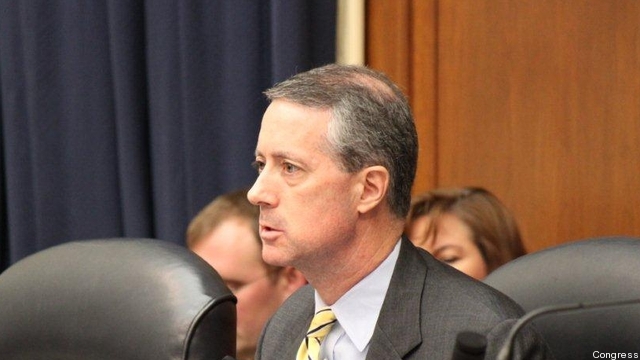 CAPITOL HILL: Intent on ensuring the American taxpayers gets value for money and the Defense Department gets tactical intelligence it needs, Rep. Mac Thornberry wants to fence half of the money for the Pentagon’s new Defense Clandestine Service.
CAPITOL HILL: Intent on ensuring the American taxpayers gets value for money and the Defense Department gets tactical intelligence it needs, Rep. Mac Thornberry wants to fence half of the money for the Pentagon’s new Defense Clandestine Service.
“I think that DIA has made significant progress in developing and explaining the DCS,” Thornberry, chairman of the House Armed Services intelligence and emerging threats subcommittee, said in an interview. “Remember, they are not adding money or people to do this.” He argued that DCS would result in better trained and more effective human collectors. DIA has long fielded spies but they have not been trained or run by anything like the CIA’s Clandestine Service.
Thornberry said the DCS was intended to “put more structure and professionalism in the ranks. I can’t believe anyone would object to that.”
However, some intelligence professionals and Sen. John McCain have raised questions, with the Arizona senator saying he doesn’t oppose DCS but wants to ensure tight oversight. After all, the CIA has long trained and fielded spies. Why does the country need another human intelligence collection effort, I asked the congressman?
“The CIA is focused on national defense requirements. There are some defense requirements that are important but may not rise to that level,” he said. “Also, If you go back to 911 and since then, one of the big gaps has been in human intelligence collection. There’s lots of work for everybody.”
The draft markup of the intelligence and emerging threats subcommittee would stop the DCS from getting 50 percent of the 2014 money until Defense Secertary Chuck Hagel certifies to the congressional defense and intelligence committees that the DCS would do things “that are unique to the Department of Defense or otherwise unmet; and provide unique capabilities to the intelligence community….” The draft language would also require the Pentagon to “design metrics” to ensure outsiders can track that the DCS is being used correctly and would require annual assessments of its utility for five years.
Is Thornberry worried about possible Senate opposition to his language? Let’s just say he made it pretty clear the answer is no.
Major trends and takeaways from the Defense Department’s Unfunded Priority Lists
Mark Cancian and Chris Park of CSIS break down what is in this year’s unfunded priority lists and what they say about the state of the US military.


























